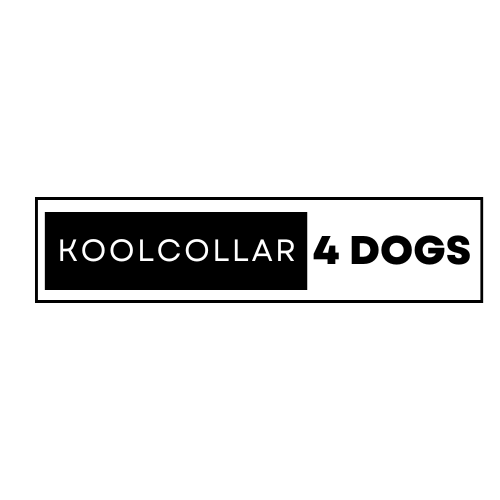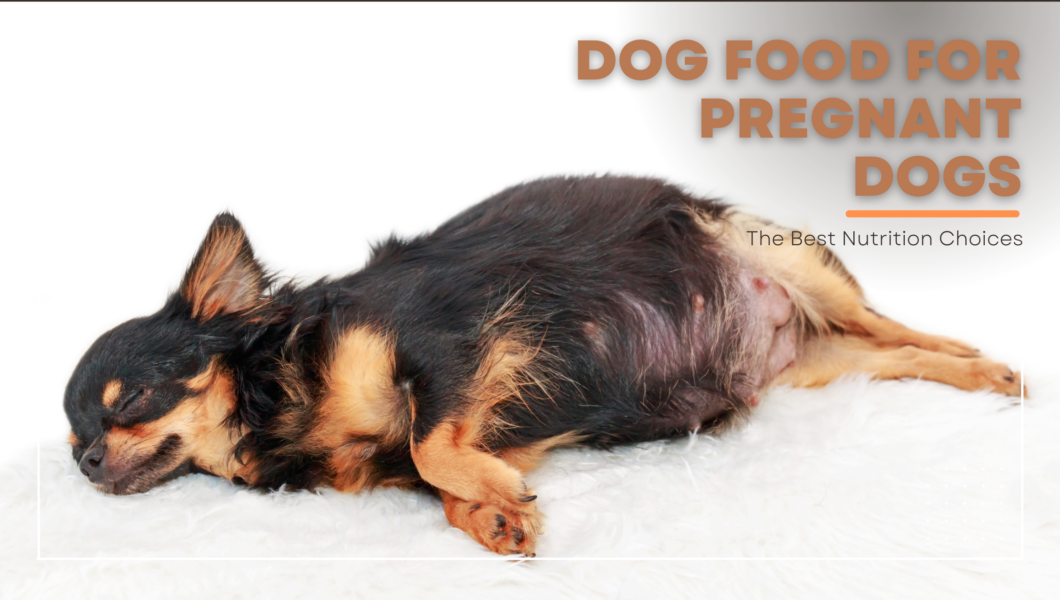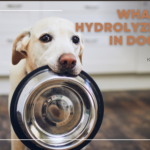Understanding the nutritional needs of pregnant dogs
As a responsible dog owner, one of the most crucial responsibilities during 58-68 dog weeks of pregnancy is ensuring they receive the proper nutrition. Pregnant dogs have specific dietary requirements that must be met to support the growth and development of their puppies. As well as to maintain their own health throughout this demanding period. In this comprehensive guide, we will explore the best dog food for pregnant dogs, covering everything from essential nutrients to recommended brands and feeding schedules.
Pregnancy places significant demands on a dog’s body condition, and their nutritional needs change significantly during this time. They require an increased intake of calories, proteins, vitamins, and minerals to support the growth of the puppies and maintain their own energy levels. Failure to provide adequate nutrition can lead to complications. Such as low birth weight, poor milk production, and potential health issues for both the mother and her puppies, such as fatigue and swollen stomach in the third trimester.
Also Read Hydrolyzed Protein Dog Food
To ensure your pregnant dog receives the best possible care. It is crucial to understand her specific nutritional requirements and make informed decisions about her diet. By following the guidelines outlined in this article, you can help your furry friend navigate this exciting yet challenging phase, with ease and provide her with the nourishment she needs for a healthy pregnancy and delivery.
The importance of feeding a balanced diet during pregnancy
Maintaining a balanced nutritious diet is essential for the well-being of both the pregnant dog and her developing puppies. A balanced diet provides the necessary nutrients in the correct proportions. Ensuring optimal growth and development of the fetus while supporting the mother’s health throughout the pregnancy.
Also Read Dog food for Puppies
During pregnancy, a dog’s energy requirements increase by up to 25% due to the demands of carrying and nourishing the growing puppies. Providing a diet rich in high-quality protein, fats, and complex carbohydrates is crucial for meeting these increased calorie needs and supporting the growth of the developing puppies.
Additionally, a balanced diet helps prevent potential complications and weight gain associated with nutrient deficiencies or excesses. Deficiencies in essential vitamins and minerals can lead to issues such as poor fetal development, low birth weight, and reduced milk production. On the other hand, excessive intake of certain nutrients can also be harmful, potentially leading to complications like obesity, gestational diabetes, and other health problems.
Ensuring your pregnant dog receives a balanced diet tailored to her specific needs. You can help support a healthy pregnancy and promote optimal puppy development. And prepare her body for the demands of lactation and nursing. A veterinarian consultation can help you create a customized feeding plan, to feed your pregnant dog that meets your dog’s unique nutritional requirements during this critical period.
Key nutrients to look for in dog food for pregnant dogs
When selecting **pregnant dog food**, it’s essential to understand the key nutrients that should be present in adequate quantities. Here are some of the most crucial nutrients to look for:
- Protein: Protein is vital for the growth and development of the puppies. As well as for maintaining the mother’s muscle mass and overall health. High-quality animal-based protein sources, such as chicken, lamb, or fish, are preferred over plant-based sources.
- Fats: Fats provide energy and support the development of the puppies’ nervous system and overall growth. Look for dog foods that contain healthy sources of fats, such as fish oils or plant-based oils like coconut or flaxseed oil.
- Carbohydrates: Complex carbohydrates, such as those found in whole grains, vegetables, and legumes, provide energy and fiber for the pregnant dog.
- Calcium and Phosphorus: These minerals are essential for the proper development of the puppies’ skeletal system. Adequate levels of calcium and phosphorus are crucial during pregnancy and lactation.
- Vitamins: Vitamins like A, D, E, and B-complex play vital roles in the growth and development of puppies. As well as supporting the mother’s overall health and immune support.
- Omega-3 and Omega-6 Fatty Acids: These essential fatty acids support the development of the puppies’ nervous system and contribute to overall health and well-being, including brain development.
- Antioxidants: Antioxidants like vitamin E and vitamin C help protect the mother and her puppies from oxidative stress and support a healthy immune system.
When selecting dog food for pregnant females, carefully read the labels and look for products that are specifically formulated for pregnant or nursing dogs. These foods are designed to provide the optimal balance of nutrients required during this critical stage. Avoid excessive fillers and artificial additives that may cause digestive sensitivity.
Choosing the best food for pregnant dogs
With so many options available in the market, choosing what is the best food for pregnant dogs can be a daunting task. Here are some key factors to consider when selecting the best food for a pregnant dog:
Nutritional Adequacy
Look for dog foods that are formulated specifically for pregnant or nursing dogs. As these will provide the optimal balance of nutrients required during this stage. Check the label for a statement indicating that the food intake meets the nutritional requirements established by the Association of American Feed Control Officials (AAFCO) for pregnant or nursing dogs.
High-Quality Ingredients
Opt for dog foods that use high-quality, easily digestible ingredients. Avoid foods that contain excessive amounts of fillers, by-products, or artificial preservatives. Whole, natural ingredients like real meat, vegetables, and whole grains are preferred.
Protein Source
Choose a dog food that lists a high-quality animal-based protein source. Such as chicken, lamb, or fish, as the first ingredient. Plant-based proteins alone may not provide the complete amino acid profile required for optimal growth and development.
Calorie Density
Pregnant dogs require a higher caloric intake. So look for dog foods that are calorie-dense to ensure your furry friend gets the energy she needs without having to consume excessive amounts of food.
Brand Reputation
Research the brand’s reputation and look for companies that have a proven track record of producing high-quality, nutritious dog foods. Read reviews and consult with your veterinarian or other pet owners for recommendations.
Palatability
While nutrition is the top priority, it’s also important to choose a food that your dog enjoys eating. A palatable food will encourage your pregnant dog to maintain a healthy appetite. Which is crucial for meeting her increased nutritional demands.
Remember, every dog is unique, and their individual needs may vary based on factors such as breed, size, and stage of pregnancy. Consulting with your veterinarian or a canine nutritionist can help you make the most informed decision for your pregnant furry companion.
Recommended brands for dog food for pregnant dogs
When it comes to selecting the best dog food for pregnant dogs. Several reputable brands offer high-quality options specifically formulated for this critical stage. Here are some recommended brands to consider:
Purina Pro Plan
Purina Pro Plan offers a line of prenatal dog food designed for pregnant and nursing dogs, including their Puppy and Nursing formulas. These foods are formulated with high-quality proteins, essential vitamins, and minerals. To support the nutritional needs of both the mother and her puppies.
Hill’s Science Diet
Hill’s Science Diet has a range of dog foods tailored for different life stages, including their Puppy Healthy Development formula. Which is suitable for pregnant and nursing dogs. These foods are developed with the guidance of veterinarians and pet nutritionists to ensure optimal nutrition.
Royal Canin: Royal Canin pregnant dog food
It includes Puppy and Nursing formulas specifically designed to meet the increased nutritional demands of pregnant and lactating dogs. These foods contain high-quality proteins, essential fatty acids, and a balanced blend of vitamins and minerals.
Wellness
Wellness offers a line of dog foods called Wellness CORE. Which includes a Puppy formula suitable for pregnant and nursing dogs. These foods are made with high-quality, natural ingredients and are free from artificial preservatives, colors, and flavors.
Blue Buffalo
Blue Buffalo’s Life Protection Formula line includes a Puppy formula that can be fed to pregnant and nursing dogs. These foods are made with real meat. As the first ingredient and are free from by-product meals, artificial flavors, and preservatives.
When choosing a brand, it’s essential to read the labels carefully and consult with your veterinarian to ensure the food meets your dog’s specific nutritional needs during pregnancy. Additionally, consider factors such as your dog’s preferences, potential allergies, and your budget.
Remember, while these brands are generally considered high-quality options, every dog is unique, and their individual needs may vary. It’s always best to work closely with your veterinarian to determine the most suitable diet for your pregnant furry companion.
Dry dog food vs. wet dog food for pregnant dogs
When it comes to choosing between dry and wet food for pregnant dogs. There are pros and cons to consider for each option. Let’s explore the differences and help you make an informed decision.
Dry Dog Food:
- Convenience: Dry dog food is easy to store, measure, and serve, making it a convenient option for busy pet owners.
- Dental Health: The crunchy texture of dry kibble can help scrape away plaque and tartar, promoting better dental health for your pregnant dog.
- Calorie Density: Dry dog foods tend to be more calorie-dense, which can be beneficial for pregnant dogs who require a higher caloric intake.
- Cost-Effective: Generally, dry dog foods are more cost-effective than wet foods, especially when purchased in larger bags.
Wet Dog Food:
- Palatability: Many dogs find wet food more palatable and appealing. Which can help maintain a healthy appetite during pregnancy when appetite fluctuations are common.
- Moisture Content: Wet foods have a higher moisture content. This can be beneficial for dogs who may not drink enough fresh water on their own, helping to prevent dehydration.
- Digestibility: Some dogs may find wet foods easier to digest. Especially if they have sensitive stomachs or are experiencing digestive issues during pregnancy.
- Variety: Wet foods often come in a wider range of flavors and textures. Allowing you to rotate and provide variety in your pregnant dog’s diet.
Ultimately, the choice between dry and wet dog food (or a combination of both) will depend on your dog’s individual preferences, dietary needs, and your considerations. Many pet owners opt for a combination of dry and wet foods to provide a balanced diet and variety for their pregnant furry companions.
It’s important to note that if you decide to switch between dry and wet foods, you should do so gradually to avoid digestive upset. Additionally, always ensure that you are providing the appropriate portion sizes and caloric intake based on your dog’s specific needs during pregnancy.
Consulting with your veterinarian or a canine nutritionist can help you determine **what dog food is best for pregnant dogs** in your specific case, taking into account her breed, size, and individual preferences.
Homemade dog food recipes for pregnant dogs
While commercial dog foods can provide a convenient and balanced diet for pregnant dogs, some pet owners prefer to prepare **homemade food for pregnant dogs**. If you choose to go this route, it’s essential to ensure that the homemade diet meets all the nutritional requirements for your pregnant dog and their puppies are born healthy.
Here are two delicious and nutritious homemade dog food recipes that are suitable for pregnant dogs:
Recipe 1: Protein-Packed Pregnancy Patties
Ingredients:
- 1 lb ground turkey or lean ground beef
- 1 cup cooked brown rice
- 1 cup cooked sweet potato
- 1/2 cup cooked spinach or kale
- 1 egg
- 1 tablespoon ground flaxseed
- 1 teaspoon bone meal supplement (for calcium)
Instructions:
- Preheat your oven to 350°F (175°C).
- In a large bowl, mix the ground meat, cooked brown rice, sweet potato, spinach or kale, egg, and ground flaxseed until well combined.
- Form the mixture into patties and place them on a parchment-lined baking sheet.
- Bake for 20-25 minutes, or until the patties are cooked through.
- Allow the patties to cool completely before serving.
- Sprinkle the bone meal supplement over the patties to provide additional calcium.
Recipe 2: Nutrient-Dense Pregnancy Stew
Ingredients:
- 1 lb boneless, skinless chicken thighs
- 1 cup cooked quinoa
- 1 cup cooked carrots
- 1/2 cup cooked green beans
- 1/4 cup cottage cheese
- 1 tablespoon fish oil supplement
- 1 teaspoon ground eggshell (for calcium)
Instructions:
- In a large pot, bring water to a boil and cook the chicken thighs until fully cooked through. Remove the chicken from the pot and shred it into bite-sized pieces.
- In the same pot, combine the shredded chicken, cooked quinoa, carrots, green beans, and cottage cheese.
- Add enough water or low-sodium chicken broth to create a stew-like consistency.
- Stir in the fish oil supplement and ground eggshell.
- Simmer the stew for 10-15 minutes, allowing the flavors to meld together.
- Allow the stew to cool before serving.
These recipes are designed to provide a balanced blend of high-quality proteins, complex carbohydrates, healthy fats, and essential vitamins and minerals for your pregnant dog.


